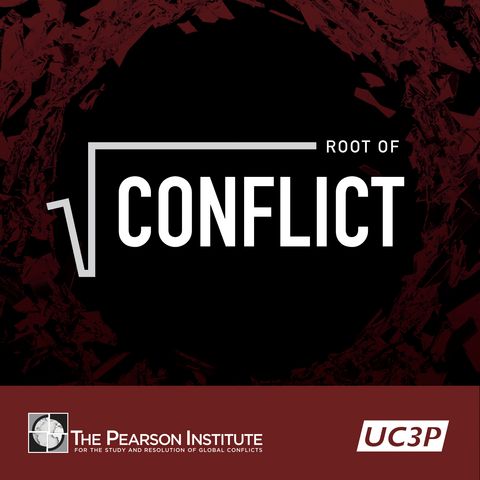
Contacts
Info
Why are some places affected by violence and disorder while others enjoy peace and stability? From the University of Chicago Public Policy Podcasts, “Root of Conflict” analyzes violent conflict around...
show moreThis series is produced in partnership with the Pearson Institute for the Study and Resolution of Global Conflicts at the Harris School of Public Policy. We're produced and hosted by Hannah Balikci and edited by Nishita Karun.
Learn more about Root of Conflict here.

Root of Conflict
Root of Conflict
Human Rights in North Korea | Ambassador Julie Turner
A War Later | Juanita Velez
Power & Development | Raul Sanchez de la Sierra
Polarization in a Region of Turmoil | Daniel Brumberg
Colonizing Kashmir | Hafsa Kanjwal
Philosophies of Research | Austin Wright
Gendered Dimensions of Conflict | Maliha Chishti
Mothers and Peacebuilding | Amal Hamada
After Authoritarianism | Monika Nalepa
Kurdish Women and Resistance | Rez Gardi
Why are some places affected by violence and disorder while others enjoy peace and stability? From the University of Chicago Public Policy Podcasts, “Root of Conflict” analyzes violent conflict around...
show moreThis series is produced in partnership with the Pearson Institute for the Study and Resolution of Global Conflicts at the Harris School of Public Policy. We're produced and hosted by Hannah Balikci and edited by Nishita Karun.
Learn more about Root of Conflict here.
Information
| Author | UC3P |
| Organization | UC3P |
| Categories | Politics , Social Sciences |
| Website | thepearsoninstitute.org |
| thepearsoninstitute@uchicago.edu |
Copyright 2024 - Spreaker Inc. an iHeartMedia Company
